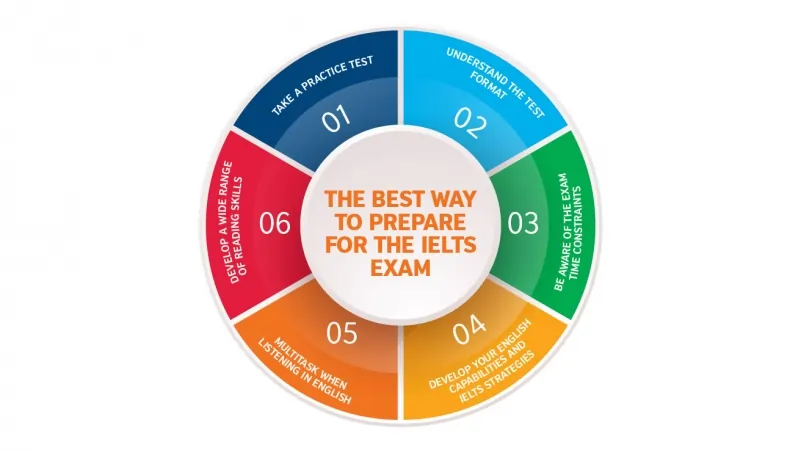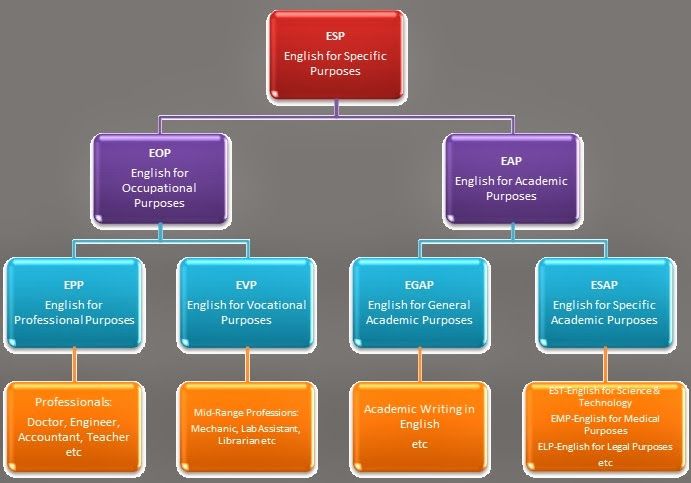Are you an international student dreaming of studying or working in an English-speaking country? Or perhaps you’re looking to enhance your English skills for personal or professional growth? The path to fluency and confidence may be closer than you think, thanks to English Language Intensive Courses for Overseas Students, better known as ELICOS.
These programs offer a focused and immersive environment to accelerate your language learning journey. In this comprehensive guide, we’ll take you through everything you need to know about ELICOS, from the different types of programs to choosing the right provider and maximizing your experience.
By the end, you’ll be equipped with the knowledge to embark on your own ELICOS adventure and unlock a world of opportunities.
| ELICOS Full Form | English Language Intensive Courses for Overseas Students |
| ELICOS Regulatory | AQSA |
| EFL & ESL Provided Under | VET Institutes / Official ELICOS Providers |
| Per Application Fee | AUD 500 |
| Application Accepted | Online |
| Application Renewal Fee | AUD 7,000 – AUD 8,000 |
| Admission Intake | Around the year |
| Average Tuition Fee | AUD 450 per week |
| Mode of Study | Both on-campus and online |
| Types of Courses | General English & English for Academic Purposes (EAP) |
Types of ELICOS Programs
ELICOS programs come in a variety of flavors to cater to different needs and goals. Here’s a breakdown of the main types:
1. General English (GE):
- Focus: Enhancing overall English proficiency in reading, writing, listening, and speaking.
- Suitable for: Students who want to improve their daily communication skills, travel, or work in casual settings.
- Typical Duration: Ranges from a few weeks to several months.
2. English for Academic Purposes (EAP):

- Focus: Developing the English skills necessary for success in university or college studies.
- Suitable for: Students planning to pursue higher education in English-speaking countries.
- Typical Duration: Several months, often aligning with university intake periods.
3. Exam Preparation Courses:

- Focus: Preparing for standardized English language tests like IELTS, TOEFL, PTE Academic, etc.
- Suitable for: Students who need to meet specific English proficiency requirements for study or immigration.
- Typical Duration: Varies based on the test and individual needs.
4. English for Specific Purposes (ESP):

- Focus: Tailoring English language learning to specific professions or industries (e.g., Business English, English for Healthcare Professionals, etc.).
- Suitable for: Professionals who want to improve their English skills for career advancement.
- Typical Duration: Varies depending on the field and level of specialization.
Choosing the Right Type:
The best ELICOS program for you depends on your individual goals, current English level, and time constraints. It’s essential to research different programs and providers to find the one that best aligns with your needs.
Would you like me to elaborate on any of these program types? Perhaps you’re interested in a deeper dive into English for Academic Purposes or exam preparation? Let me know!
Benefits of Studying ELICOS Courses
Studying ELICOS courses offers several advantages:
- Language Proficiency: ELICOS programs enhance your English language skills, making you more proficient in listening, speaking, reading, and writing.
- Academic Preparation: If you plan to study at an Australian university, ELICOS courses prepare you for academic success by focusing on English for academic purposes (EAP).
- Cultural Immersion: You’ll interact with students from diverse backgrounds, gaining exposure to different cultures and perspectives.
- Exam Readiness: ELICOS programs often include exam preparation courses for standardized English language tests like IELTS, PTE, or TOEFL.
- Real-Life Learning: Beyond the classroom, ELICOS emphasizes critical thinking, group work, and practical experiences.
Remember, ELICOS is not just about language; it’s a holistic learning experience!
Common Levels in ELICOS Courses
ELICOS courses typically structure their curriculum into levels based on students’ English proficiency. While the exact names and number of levels can vary between providers, here’s a common framework you’ll encounter:
Beginner (Elementary):
- Focus: Basic vocabulary, grammar, and communication skills.
- Suitable for: Students with limited or no prior English experience.
- Typical Activities: Simple conversations, everyday vocabulary practice, basic grammar drills.
Pre-Intermediate:
- Focus: Expanding vocabulary, developing sentence structures, and improving fluency.
- Suitable for: Students who can understand simple conversations and write basic sentences.
- Typical Activities: Everyday communication practice, role-plays, simple reading and writing tasks.
Intermediate:
- Focus: Further developing vocabulary, grammar, and fluency, with a focus on more complex communication tasks.
- Suitable for: Students who can understand and participate in most conversations and write basic paragraphs.
- Typical Activities: Discussions, presentations, reading articles, writing essays.
Upper-Intermediate:
- Focus: Refining language skills, expressing complex ideas, and understanding academic texts.
- Suitable for: Students who can communicate effectively in most situations and write clear essays.
- Typical Activities: Debates, academic discussions, writing research papers, reading academic texts.
Advanced:
- Focus: Achieving near-native fluency, understanding academic nuances, and mastering complex language structures.
- Suitable for: Students with strong English skills who want to refine their language use for academic or professional purposes.
- Typical Activities: In-depth academic discussions, complex writing assignments, presentations on specialized topics.
Other Levels:
- English for Academic Purposes (EAP) Levels: Many ELICOS providers have specific EAP levels that focus on the language skills required for academic success.
- Exam Preparation Levels: Some programs have levels designed to prepare students for specific English proficiency exams (e.g., IELTS, TOEFL).
How Levels are Determined:
Most ELICOS providers will assess your English level before you start the course through a placement test. This helps them place you in the appropriate level so you can progress at the right pace.
Level Progression:
You’ll typically move up levels as your English skills improve. Some programs have regular assessments to track your progress, while others may allow you to move up based on teacher recommendations or your own request.
Why Levels Matter:
The right level ensures you’re challenged but not overwhelmed, maximizing your learning potential. It’s important to choose a program that offers the right level for your current proficiency so you can achieve your language goals effectively.
Costs Associated with ELICOS Programs
The cost of ELICOS (English Language Intensive Courses for Overseas Students) programs in Australia can vary based on factors such as course duration and institution. Here’s a general idea:
Absolutely! Here’s a table outlining the estimated costs associated with ELICOS programs:
| Expense Category | Description | Estimated Cost (AUD per week) | Notes |
|---|---|---|---|
| Tuition Fees | Cost of the ELICOS course itself | $200 – $600+ | Varies widely based on program type, duration, provider, and location. |
| Materials | Textbooks, online resources, exam fees (if applicable) | $15 – $100+ | Exam fees can be significant (e.g., IELTS: $340). |
| Accommodation | Homestay, shared apartment, student housing | $200 – $450 | Can be higher in city centers. |
| Food | Groceries, eating out | $100 – $150 | Can vary depending on eating habits. |
| Transportation | Public transport, taxis, bike rentals | $20 – $50 | Depends on location and frequency of travel. |
| Health Insurance | Mandatory for most international students | $15 – $25 (per week) | Varies depending on coverage and provider. |
| Other Expenses | Personal items, entertainment, phone bills, etc. | $50 – $100+ | Highly variable depending on lifestyle. |
| Visa Fees | Student visa (for longer courses) or tourist visa (for shorter courses) | $0 – $650 (one-time) | Tourist visa may be sufficient for short courses, but check the regulations of your destination. |
| Application Fees | One-time fee paid to the ELICOS provider and/or university (if applicable) | $100 – $250 (one-time) | Varies depending on the provider and university. |
1. Tuition Fees:
- The biggest expense: This is the cost of the course itself.
- Wide range: Prices vary significantly depending on the provider, location, course type, duration, and intensity.
- Weekly estimates:
- General English: AUD $200 – $450 per week
- English for Academic Purposes: AUD $300 – $500 per week
- Exam Preparation: AUD $350 – $600 per week
- English for Specific Purposes: Can be higher depending on specialization.
- Packages: Some providers offer package deals for longer durations, which may be more cost-effective.
2. Additional Materials:
- Textbooks: Often required, can cost AUD $50 – $100 per book.
- Learning resources: Some providers may offer online materials or subscriptions, which may incur extra fees.
- Exam fees: If you’re taking an exam preparation course, the exam fee itself will be separate.
3. Living Expenses:
- Accommodation: Varies depending on your choice (homestay, shared apartment, student housing). Budget for AUD $200 – $450 per week.
- Food: Expect to spend around AUD $100 – $150 per week on groceries and eating out.
- Transportation: Public transport costs, taxis, or bike rentals.
- Health insurance: Mandatory for international students in most countries, costing around AUD $50 – $100 per month.
- Other: Personal expenses like phone bills, entertainment, etc.
4. Visa Fees:
- Student visa: Required for longer ELICOS courses, costing around AUD $650 (subject to change).
- Tourist visa: Might be sufficient for shorter courses, but check the regulations of your chosen destination.
5. Application Fees:
- ELICOS provider: A one-time fee, typically around AUD $100 – $250.
- University (if applicable): May apply if you’re enrolling in a pathway program.
Tips for Managing Costs:
- Budget Carefully: Create a detailed budget before you go to track your expenses.
- Look for Scholarships: As discussed earlier, many scholarships are available to help offset costs.
- Cook Your Own Meals: Eating out can quickly add up, so cook at home when possible.
- Use Public Transport: It’s usually more affordable than taxis or rideshares.
- Take Advantage of Student Discounts: Many businesses offer discounts to students.
Total Estimated Weekly Cost:
- Low End: $505 – $1,195
- High End: $875 – $1,825+
These are just estimates, and the actual costs will depend on your specific circumstances. It’s crucial to research thoroughly and compare different providers to find the best value for your money.
Scholarships Available for ELICOS Students
There are scholarships available for ELICOS (English Language Intensive Courses for Overseas Students) students in Australia. Here are a few options:
1. ELICOS-Specific Scholarships:
- Offered by: ELICOS providers themselves (language schools, colleges, universities)
- Focus: Reducing tuition fees for ELICOS programs
- Eligibility: Varies widely; may be based on academic merit, financial need, country of origin, or specific program enrollment
2. University Pathway Scholarships:
- Offered by: Universities that have pathway programs with ELICOS providers
- Focus: Covering a portion (or all) of ELICOS tuition if you then enroll in a degree program at that university
- Eligibility: Typically requires a conditional offer of admission to the university program
3. Government Scholarships:
- Offered by: Governments of English-speaking countries (e.g., Australia Awards, Chevening Scholarships, Fulbright)
- Focus: Supporting international students studying in their country, including ELICOS
- Eligibility: Often very competitive, with requirements for academic excellence, leadership potential, and specific study areas
4. Organization-Based Scholarships:
- Offered by: Private organizations, foundations, or corporations with an interest in education or cultural exchange
- Focus: Varies; may be targeted towards specific countries, fields of study, or demographic groups
- Eligibility: Depends on the organization’s goals and criteria
Example Scholarships:
- La Trobe University ELICOS Scholarship: Covers ELICOS tuition for international students who then pursue an undergraduate or postgraduate degree at La Trobe.
- Edith Cowan University ELICOS Pathways Scholarship: Covers up to five weeks of ELICOS for students who package it with an ECU degree.
- Swinburne ELICOS+ Scholarship: Refunds up to 10 weeks of ELICOS fees for students who then enroll in a degree at Swinburne.
Remember to explore these opportunities and check specific eligibility criteria for each scholarship.
How to Choose the Right ELICOS Course
Choosing the right ELICOS course is essential for improving your English language skills and achieving your goals in Australia. Here are some steps to help you make an informed decision:
- Explore Your Options: Australia offers a variety of ELICOS providers, ranging from prestigious universities to dedicated language centers. Research different institutions to find the one that aligns with your preferences and needs.
- Match Your Goals: Consider your objectives. Do you need academic English for further studies or career-specific English? Choose a course that best suits your aspirations.
- Duration and Intensity: ELICOS programs vary in length and weekly hours. Balance your availability and urgency to find the right pace of learning.
- Consider the Extras: Some providers offer additional support, such as housing assistance, social activities, and job search resources. Take these factors into account when making your decision.
Remember, ELICOS programs are designed to enhance your English skills, so choose wisely based on your individual needs and preferences!



